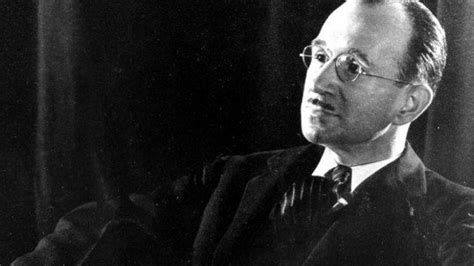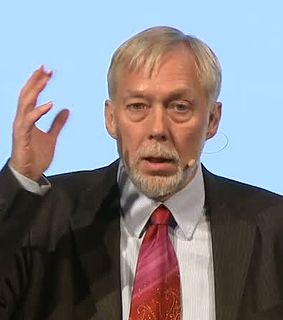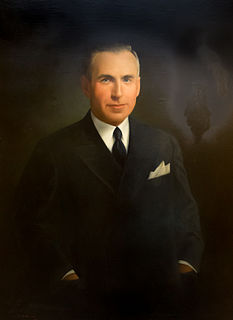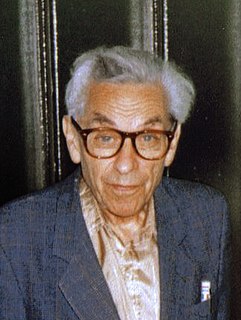A Quote by Harry Stack Sullivan
[O]ne of the greatest difficulties encountered in bringing about favorable change is this almost inescapable illusion that there is a perduring, unique, simple existent self, [which is] in some strange fashion, the patient's, or the subject person's, private property.
Related Quotes
The meaning of a work is not what the author had in mind at some point, nor is it simply a property of the text or the experience of a reader. Meaning is an inescapable notion because it is not something simple or simply determined. It is simultaneously an experience of a subject and a property of a text. It is both what we understand and what in the text we try to understand.
One ideological claim is that private property is theft, that the natural product of the existence of property is evil, and that private ownership therefore should not exist... What those who feel this way don't realize is that property is a notion that has to do with control - that property is a system for the disposal of power. The absence of property almost always means the concentration of power in the state.
I have no concern with any economic criticisms of the communist system; I cannot inquire into whether the abolition of private property is expedient or advantageous. But I am able to recognize that the psychological premisses on which the system is based are an untenable illusion. In abolishing private property we deprive the human love of aggression of one of its instruments... but we have in no way altered the differences in power and influence which are misused by aggressiveness.
Every age and every nation has certain characteristic vices, which prevail almost universally, which scarcely any person scruples to avow, and which even rigid moralists but faintly censure. Succeeding generations change the fashion of their morals with the fashion of their hats and their coaches; take some other kind of wickedness under their patronage, and wonder at the depravity of their ancestors.
At certain times in the revolutionary struggle, the difficulties outweigh the favorable conditions and so constitute the principal aspect of the contradiction and the favorable conditions constitute the secondary aspect. But through their efforts the revolutionaries can overcome the difficulties step by step and open up a favorable new situation, thus a difficult situation yields place to a favorable one.
All beings exist in an invisible state and then come to a state of visibility. Change occurs only on the surface, for the self-existent glory remains unchanged; changing form does not affect the self-existent Reality. Atman, Soul or the Self, dwells in all that is perishable, yet it remains imperishable.
It has been the fashion to speak of the conflict between human rights and property rights, and from this it has come to be widely believed that the use of private property is tainted with evil and should not be espoused by rational and civilized men... the only dependable foundation of personal liberty is the personal economic security of private property. The Good Society.
Violence appears to be most commonly a result of threatened egotism -- that is, highly favorable views of self that are disputed by some person or circumstance. ... violence is perpetrated by a small subset of people with favorable views of themselves. ... Viewed in this light, the societal pursuit of high self-esteem for everyone may literally end up doing considerable harm.
That which you or I think is most unique about ourselves we hide. In ordinary discourse, in the normal state, we share our common self, our superficial self. Yet what is most unique about us is what has the greatest potential for bonding us. When we share our uniqueness, we discover the commonality in greatness that defines everyone on the planet.
What I do know is, in little more than 30 years, we have gone from a nation where the “quiet enjoyment” of one’s private property was a sacred right, to a day when the so-called property “owner” faces a hovering hoard of taxmen and regulators threatening to lien, foreclose, and “go to auction” at the first sign of private defiance of their collective will ... a relationship between government and private property rights which my dictionary defines as “fascism.”
Some people spend their entire lives thinking about one particular famous person. They pick one person who's famous, and they dwell on him or her. They devote almost their entire consciousness to thinking about this person they've never even met, or maybe met once. If you ask any famous person about the kind of mail they get, you'll find that almost every one of them has at least one person who's obsessed with them and writes constantly. It feels so strange to think that someone is spending their whole time thinking about you.
I hope that I have gained some wisdom, but I don't know. I have kids, and that certainly puts things into perspective. I think I'm a more patient person. I hope I'm a more patient person. I'm a little more relaxed about the peripheral side of this business, which I used to find very confusing and alarming.





































